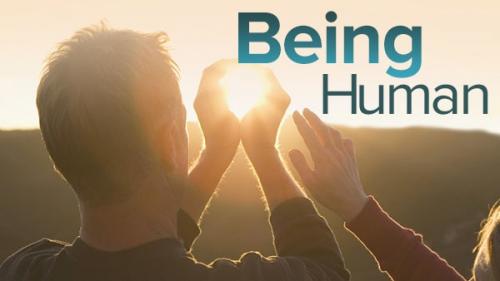
TheGreatCoursesPlus - Being Human: Life Lessons from the Frontiers of Science
Join an acclaimed neurobiologist and award-winning professor for a surprising, amusing, and undeniably fascinating study of what makes you YOU by going to the front lines of scientific research to provide a new perspective on the supposedly quirky nature of being ourselves.
1: What's So Special about Being Human?
- Humans are, from an evolutionary perspective, certainly the most unique species on Earth. Start the course by learning how to approach the subject of human behavior. You may be surprised to discover that there are plenty of ways in which we have the same behavioral aspects as other animals-and also behaviors for which there is no precedent in the animal kingdom....
2: Junk-Food Monkeys
- What happens when nonhuman primates get to eat like Westernized humans? And what does it say about the costs-and surprising benefits-of our diets? Find out the answers in this lecture, which focuses on a fascinating study of East African baboons who abandoned their natural diet to gorge on garbage from a local tourist lodge....
3: The Burden of Being Burden-Free
- Investigate the latest anthropological and scientific understanding behind a pervasive part of our everyday lives: stress. You'll discover what makes psychological stress so damaging to health, where individual differences in stress come from, the nature of disorders including toxic hostility and clinical depression, and why it's impossible to be completely free of stress....
4: Bugs in the Brain
- Professor Sapolsky introduces you to parasites that exploit their hosts by altering their behavior. After looking at studies, including mites that make ants find food for them and worms that drive crickets to suicide, focus on how rabies and toxoplasmosis can literally change the wiring of the brain in mammals-including humans....
5: Poverty's Remains
- Turn to an intriguing historical case of doctors who, failing to appreciate the impact of poverty on our bodies, invented an imaginary disease whose preventive methods killed thousands of people. It's a peek into an odd corner of medical history that reveals startling lessons about the socioeconomics of medicine....
6: Why Are Dreams Dreamlike?
- Why does your brain generate sensory imagery while you sleep? Here, examine the neurology of sleeping and dreaming. Also, discover how the key to strange dreams lies in your frontal cortex, which, when it goes completely offline, allows the rest of your brain to run wild....
7: The Pleasures and Pains of "Maybe"
- For a long time, scientists thought that the neurotransmitter dopamine was directly related to pleasure. But it turns out that dopamine is more about the anticipation of reward than the reward itself. Here, plunge into the neuroscience behind why we're willing to deal with such long delays in gratification, and what it says about the potential of humans to experience both magnificent levels of mot...
8: How the Other Half Heals
- Learn about the intricate relationship between personal health and socioeconomic status. You'll learn how poverty is terrible for your health in unexpected ways, why some diseases (including polio) were more prevalent among the wealthy, and how shifting views of childcare in the 20th century showed that successful infant development relies not just on food, warmth, and the latest technology-but on...
9: Why We Want the Bodies Back
- Why do human bodies remain important after the life within them has gone? Is it a sign of affirmation, mourning, reverence? Or something else? Explore some of the world's diverse rituals and beliefs about the treatment of dead bodies, from Alaska to Israel to Sudan and beyond....
10: Anatomy of a Bad Mood
- Learn what happens when you or others are in a bad mood by exploring some theories about emotion; explore the role of facial expressions in emotional feedback; and change the way you think about tense arguments....
11: This Is Your Brain on Metaphors
- Dr. Sapolsky explains how metaphors work on the brain to actually change your opinions, assessments, and even action; investigates how we register disgust and pain in key regions of the brain; and shows metaphors' intriguing hold on our hearts and minds at work in politics and international events....
12: Sushi and Middle Age
- Consider the brain science behind nostalgia. Why do we, as well as members of other species, tend to avoid novelty over time in favor of the familiar? Taking you through some rather eccentric research of his own, Professor Sapolsky uncovers some startling facts about the psychology, neurobiology, and evolution of this phenomenon....

Being.Human.Life.Lessons.from.the.Frontiers.of.Science.part1.GC.rar
Being.Human.Life.Lessons.from.the.Frontiers.of.Science.part2.GC.rar
Related Posts
Information
Members of Guests cannot leave comments.
Top Rated News
- Sean Archer
- John Gress Photography
- Motion Science
- AwTeaches
- Learn Squared
- PhotoWhoa
- Houdini-Course
- Photigy
- August Dering Photography
- StudioGuti
- Creatoom
- Creature Art Teacher
- Creator Foundry
- Patreon Collections
- Udemy - Turkce
- BigFilms
- Jerry Ghionis
- ACIDBITE
- BigMediumSmall
- Boom Library
- Globe Plants
- Unleashed Education
- The School of Photography
- Visual Education
- LeartesStudios - Cosmos
- Fxphd
- All Veer Fancy Collection!
- All OJO Images
- All ZZVe Vectors



 Categories
Categories







